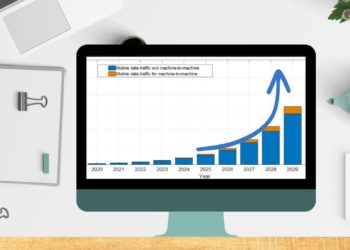Data is the language of modern business. Companies rely on it to make decisions, predict trends, and measure success. Power BI, a powerful data visualisation tool, is a must-have skill for anyone looking to work in data-driven roles.
But here’s the thing – knowing how to use Power BI is not enough. You also need to showcase your expertise in a way that grabs an employer’s attention.
Adding Power BI to your resume and interviews makes you a standout candidate. So, now, you will learn how you can effectively present this skill to land your dream job.
Highlighting Power BI on your resume
A recruiter looks at you through your resume. Therefore, you should make a great one.
- Include Power BI in your skills section
Don’t just mention ‘Power BI’ under technical skills. Be specific. Write something like:
Proficient in creating interactive dashboards using Power BI.
Experienced in DAX formulas for advanced data modelling.
This shows depth and gives recruiters a clear idea of your expertise. If you’ve taken online Power BI courses, mention them too. You can also add the completion certificate to your LinkedIn profile.
- Show results in your experience section
Employers want to see how you’ve used Power BI to solve real problems. Your achievements should look quantifiable. See the example:
Developed a Power BI dashboard that reduced reporting time by 30%.
Created visualisations that improved sales forecasting accuracy by 20%.
Numbers catch the eye and prove your impact.
- Tailor your resume to the job
If the job description mentions Power BI, make it prominent on your resume. Align your experience and achievements with the role’s requirements. Use keywords from the job posting so that your resume gets past the applicant tracking system. (ATS).
- Add a Power BI portfolio link
A portfolio showcasing your dashboards sets you apart. Include a link to an online portfolio or GitHub where employers can see your work. Highlight projects that solve real-world problems and demonstrate your creativity.
Making Power BI the star of your interviews
Once your resume gets you in the door, it’s time to back it up in the interview. Here’s how to make your Power BI skills a focal point:
- Be ready to talk about projects
Prepare yourself to discuss specific Power BI projects you’ve worked on. Use the STAR method (Situation, Task, Action, Result) to explain:
- The problem you were solving
- How you used Power BI to tackle it
- The results you achieved.
- Bring visual examples
If possible, take a laptop or tablet with your dashboards to the interview. Visual examples leave a lasting impression. Explain the thought process behind your design, the data you used, and how it benefited the business.
- Show off advanced features
Mention advanced Power BI features you’ve mastered, like DAX formulas, Power Query, or embedding dashboards in apps. Employers value candidates who can do more than just the basics.
- Ask insightful questions
During the interview, ask how the company uses data and Power BI. This shows genuine interest and allows you to tailor your responses to their needs. For example: “How does your team use Power BI to drive decision-making?”
Tips for creating an eye-catching Power BI portfolio
A strong portfolio is all you need to make a big difference. Here are some tips to build one.
Focus on real-world problems
Create dashboards that solve practical issues.
- Sales performance dashboards
- Customer segmentation visualisations
- Financial trend analysis.
Keep it clean and professional
Avoid cluttered visuals. Use clean layouts, consistent colours, and clear labels. Simplicity is what makes your work more impactful.
Add context to your work
Don’t just share screenshots. Include a brief description of each project.
- What was the goal?
- What data did you use?
- What insights did your dashboard provide?
Update it regularly
As you gain experience, add new projects to your portfolio. This keeps it fresh and shows continuous improvement.
Final thoughts
Power BI is an important skill to have. Don’t just mention it under the technical skills section on your resume. Highlight it effectively on your resume and in interviews to stand out in the job market.
The process of doing all that will surely take some time. But it will definitely be worth it. So, take the time to craft a resume that tells your story, build a portfolio that wows, and prepare to share your expertise confidently.











































































